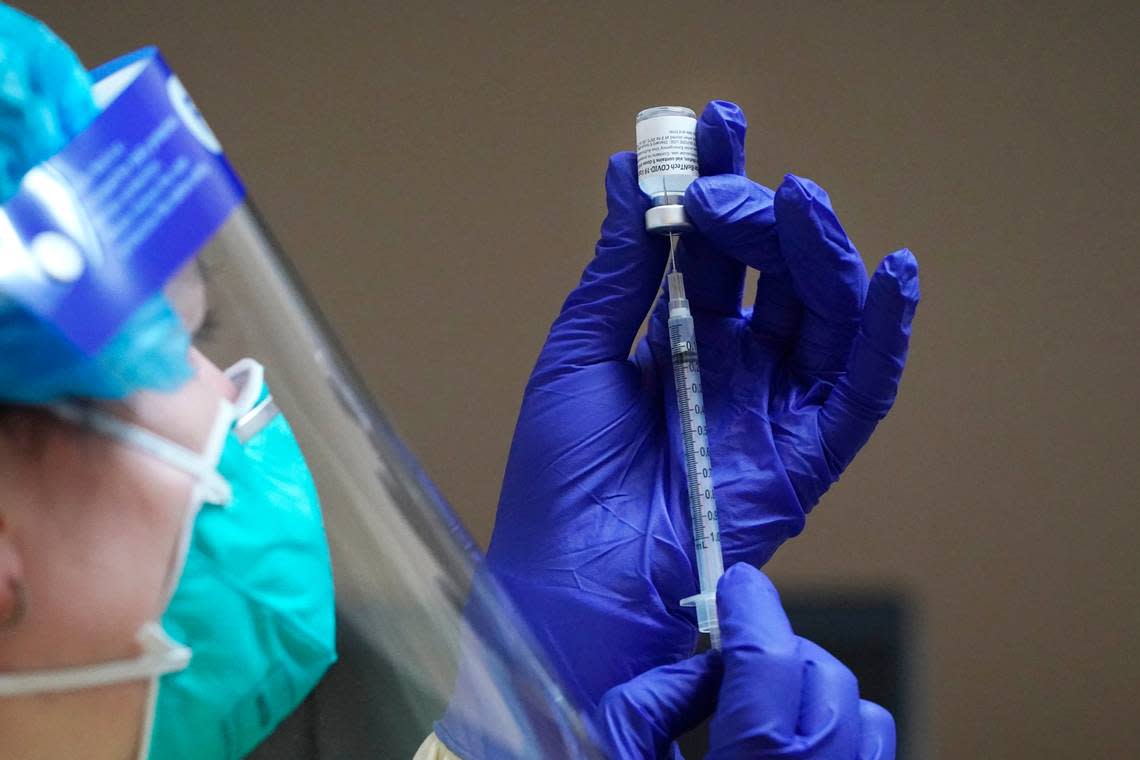Can money buy a COVID vaccine? Here’s why some worry rich Americans will cut in line

Doctors, nurses and respiratory therapists across the U.S. have received the first doses of the coronavirus vaccine authorized for emergency use this week.
Can the rich buy the next spot in line?
“I hope not,” said Patricia A. Stinchfield, a registered nurse and president of the National Foundation for Infectious Diseases, during a Poynter webinar Dec. 14. “I think that we have done a lot of careful work that’s evidence based in deciding who should go first and why they should go first. It’s based on risk.”
But in some ways, it’s out of doctors’ and health experts’ hands.
Many wealthy Americans pay for concierge medical services — a “kind of high-quality, primary care most Americans can’t afford,” the Los Angeles Times reported. Some of those services have already procured the expensive freezers needed to store the vaccine and put their patients on wait lists as soon as it becomes available for widespread distribution.
There’s also concern over black market dealings, bribery and people fudging their way on to the list of high-risk individuals and essential workers slated to receive the vaccine during the early phases of distribution, Stat News reported.
“If you have athletes in a state that want to be a strong arm to the state government’s leaders and they vow to get it, that’s out of our control,” Stinchfield said. “But we hope not. We hope people will have patience.”
2) We’ve already seen it with special VIP access to the synthetic monoclonal antibody treatments that Trump and associates got. We know it will be coming, either via direct black market sales or fudging during the “high risk” population rollout phase.
— Eric Feigl-Ding (@DrEricDing) December 7, 2020
The U.S. Food and Drug Administration authorized the Pfizer vaccine for emergency use last week, and officials are expected to authorize the Moderna vaccine Friday. Health care workers and residents and staff at long-term care facilities are first in line to receive the vaccination under recommendations from the Centers for Disease Control and Prevention.
Essential workers such as firefighters and corrections officers are next, followed by adults with high-risk medical conditions and those over age 65.
The CDC’s recommendations were based on advice by an outside group of medical experts known as the Advisory Committee on Immunization Practices. But state health officials will have the ultimate say.
What defines an essential worker is up to interpretation by individual state health departments. Guidance from the Cybersecurity and Infrastructure Security Agency and executive orders in some states define the “predominantly white” financial services industry as essential — which could include anyone from a bank teller to a stock market trader, Stat News reported.
Florida previously determined World Wrestling Entertainment was essential and allowed it to continue operating during the pandemic, according to the media outlet, while members of the media have been deemed essential by the state of California.
Because people with underlying health conditions such as smoking or asthma are also eligible for an early dose of the vaccine, Stat News reported there is opportunity for wealthy people and their physicians to fudge the severity of their health conditions. Someone’s mild asthma, for example, might be portrayed as severe to guarantee them access to a vaccine.
Glenn Ellis, a bioethicist and a visiting scholar at Tuskegee University, told the L.A. Times the ambiguity in how officials define “essential workers” and “underlying health conditions” leaves space for the well-connected to push their way forward.
“With enough money and influence, you can make a convincing argument about anything,” Ellis said, according to the Times.
Practitioners at concierge medical services have already heard from patients looking for access. Andrew Olanow, co-founder of the concierge service Sollis Health in Beverly Hills, Manhattan and the Hamptons, told MarketWatch patients have been questioning him about the vaccine since March.
Sollis Health charges anywhere from $3,000 to $5,000 a year for one adult depending on the person’s age, MarketWatch reported.
“We’ll be working hard to get access to the vaccine for the members of our practice when it becomes available to a certain risk profile,” Olanow told the media outlet. “My guess is that we, as members of the private sector, will be able to move quicker than the public sector.”
Cedars-Sinai Medical Center in Southern California was “one of the first hospitals to stock the vaccine,” the L.A. Times reported. Dr. Jeff Toll, who has admitting privileges at the hospital, told the Times he had one patient ask, “If I donate $25,000 to Cedars, would that help me get in line?’”
The answer was no. But that’s not something members of a certain class are accustomed to hearing.
“We get hundreds of calls every single day,” said Dr. Ehsan Ali, who runs Beverly Hills Concierge Doctor, told the L.A. Times. “This is the first time where I have not been able to get something for my patients.”
Ali’s clients pay between $2,000 and $10,000 annually for concierge care. They include singers Ariana Grande and Justin Bieber, the Times reported.
But some argue wealth is exactly what should hold them back from cutting in line.
“They are among the most capable of mitigating the dangers of exposure for themselves,” Shamus Khan, a professor of sociology and American studies at Princeton University, wrote in an opinion piece for The Washington Post. “Most can get their groceries delivered without any social contact. They are more likely to work the kinds of jobs that can be performed remotely. When it comes to early access to a vaccine, a chief executive is far less essential than a pharmacy clerk and far less at risk than someone imprisoned and awaiting trial.”

